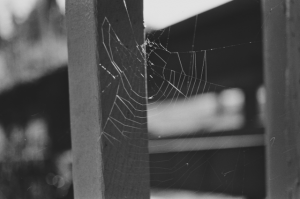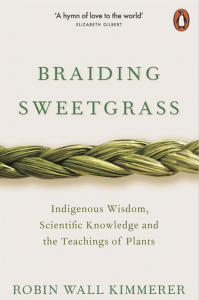This presentation was originally given at the 2021 EDST Research Day.
EDST students and faculty are invited to share their own reflections, presentations, or memories from Research Day 2023.
Amidst the pandemic in 2021, EDST students, faculty, and staff gathered on Zoom one Saturday in April.

The conference opened with introductory remarks from Dr. Margaret Kovach who powerfully discussed the university’s relationship with Indigenous ways of knowing and research methodologies.
The day began with an acknowledgement that UBC resides on the traditional, ancestral, and unceded territory of the Musqueam people. I extend this land acknowledgement and acknowledge that I live and work upon the unceded lands of the Chinook people, who (for over 120 years) have been seeking formal federal recognition. The process has involved decades of litigation, petitions, congressional legislation and appeals to presidents — yet the tribe is still unrecognized. I share this history to mark my place as a settler on this land, and to bring attention to the ongoing struggles of Indigenous peoples, recognizing that land acknowledgements do not exist in the past tense, but are part of an ongoing process of decolonization.
Following Dr.Kovach’s opening session, I presented the below presentation in a session entitled “Place based education and engaging with our environment.” The presentation draws heavily upon Robin Wall Kimmerer’s book “Braiding Sweetgrass.”
Robin Wall Kimmerer is a SUNY Distinguished Teaching Professor of Environmental Biology, and the founder and director of the Center for Native Peoples and the Environment. I came to read Robin’s book on the recommendation of a friend, and immediately fell in love with the way she speaks and views the world.
As a settler scholar engaging with Indigenous knowledges, I recognize (as the great, late Michael Marker has stated) that the academy has acted as a space of colonial erasure of Indigenous worldviews. In my engagement with these ideas, I aim to enact the sense of reciprocity and respect that Kimmerer describes, while supporting the many movements towards decolonizing university spaces.
The photos
The slides in this presentation are black and white film photographs that I took in 2020 amidst the pandemic. The photos began as a series of shots of spider webs on my front porch, but grew into a collection of snapshots capturing a number of “more than human” others.

I share these images to highlight that interaction with the physical world is a social relationship, and that these interactions bind us into the reciprocal relationships that Kimmerer describes. The photos are by no means perfect or professional, but they help me share how I view the world in an added layer that I can’t seem to capture in words alone. The process of taking the photos amidst the scariest parts of the pandemic also allowed me to retreat to the “safety” of my local ecology, building new relations with the land and its history.
With some of the slides you will hear some audio recordings of birds in my yard. In her book Kimmerer writes, “Listening in wild places, we are audience to conversations in a language not our own.” I often find myself wondering what birds are saying to one another, between the caaws and screeches and songs sent out, wondering if they can all understand one another and I’m the only one out of the loop. Within the back and forth I hear patterns and rhythms, as if the birds are composing a collective song. I take inspiration from this song into my presentation, which somewhat takes a form of call and response between Kimmerer’s words and my own.
“All Flourishing is Mutual”: Reciprocity, Education, and Braiding Sweetgrass
To watch video in full screen, click here
The above presentation was created using “Canva” (a free design tool).
Attending Research Day 2023?

Write something for the blog!
EDST students, faculty, and staff are warmly invited to share reflections, photos, and other memories from the conference. Reflections may take on the form of short narratives (such as this one on CSSE 2021 from EDST’s Yotam Ronen), summations of panel sessions, or other takeaways from the conference day.
Presenting a paper, poster, performance, roundtable, or other type of presentation?
Consider making your presentation into a blog post like this one! Posts typically are 500-1,000 words long and may include links, images, links, audio, video, and other forms of multimedia.
Have a question about submissions? Interested in creating presentations with Canva? Photos to share from Research Day?
Send an email to me (Jessica Lussier) at edstblog.editor@ubc.ca.
You can check out the blog’s full call for papers here.




 Share
Share